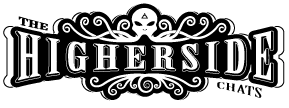It has been occurring to me that the whole Pizzagate thing could be a limited hangout created especially for facilitating this internet censorship crackdown. What better subject to get the juices boiling than pedophilia and worse? I decidedly slowed down my thinking process to become more watchful of this particular case, with so much circumstantial evidence. I feel that I may have struck at a shiny spinner that could be the international security states, out for a day of trolling. Remember how they took down an investigation of Duhbya's air national guard antics on CBS by simply producing one fake documentation of a real situation. With this Pizzagate story, all they have to do is create one witch hunt that goes down a blind alley and then all the pedos among the powerful fucks behind the curtain get off the hook.
There is solid evidence of pedo rings, pointing straight at the Whitehouse, going back to the regime of GHW Bush, but if we bite on the wrong troll bait, they get to put the whole thing to bed and kill independent journalism with the same stone. Dan Rather wasn't much of a loss, but losing things like the Corbett Report and good internet sources, by way of the big dog service providers pulling the plugs, all over this one story, is something to keep in mind until there is better than circumstantial evidence, which could be made for the job. They may already have chosen some patsy. When the next gunner walks in and takes out Comet Ping Pong, we my get our lone <del datetime="2016-12-06T23:00:08+00:00">gunman</del> errr, pedo, already Jack Ruby'd, and the rest slip the noose.
<blockquote> By Julia Fioretti
BRUSSELS (Reuters) - Web giants YouTube , Facebook , Twitter and Microsoft will step up efforts to remove extremist content from their websites by creating a common database.
The companies will share 'hashes' - unique digital fingerprints they automatically assign to videos or photos - of extremist content they have removed from their websites to enable their peers to identify the same content on their platforms.
"We hope this collaboration will lead to greater efficiency as we continue to enforce our policies to help curb the pressing global issue of terrorist content online," the companies said in a statement on Tuesday.
Tech companies have long resisted outside intervention in how their sites should be policed, but have come under increasing pressure from Western governments to do more to remove extremist content following a wave of militant attacks.
YouTube and Facebook have begun to use hashes to automatically remove extremist content.
But many providers have relied until now mainly on users to flag content that violates terms of service. Flagged material is then individually reviewed by human editors who delete postings found to be in violation.
Twitter suspended 235,000 accounts between February and August this year and has expanded the teams reviewing reports of extremist content.
Each company will decide what image and video hashes to add to the database and matching content will not be automatically removed, they said.
The database will be up and running in early 2017 and more companies could be brought into the partnership.
The European Union set up an EU Internet Forum last year bringing together the internet companies, interior ministers and the EU Counter-Terrorism Coordinator to find ways of removing extremist content.
The Forum will meet again on Thursday, when ministers are expected to ask the companies about their efforts and helping to provide evidence to convict foreign fighters.</blockquote>

